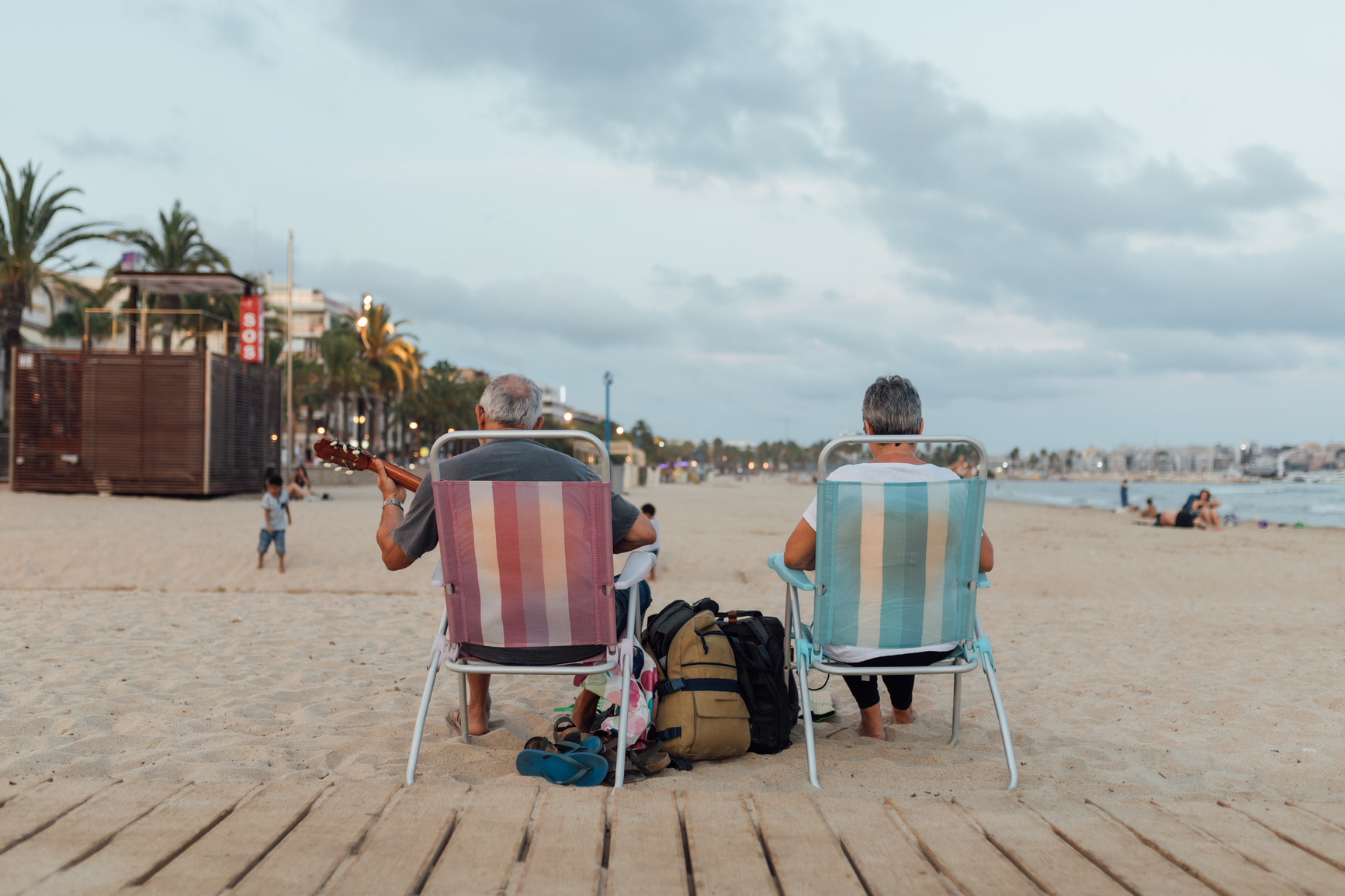Travel tips for seniors: plan safe travel at any age

8 travel tips for seniors: Making elderly travel more enjoyable
Travel is one of the best ways to feed your soul, and thanks to modern innovations it’s become more accessible than ever before. With so many unforgettable travel options at your feet, it’s no wonder so many seniors are taking to the sky and exploring the wonders of the world.
These days, there’s no need for age to put a dampener on travel plans - but before you set sail on your next adventure, there are some important things you’ll need to take care of. We know that holiday to-do lists can sometimes get a little overwhelming, so take comfort in these travel tips for seniors. After all, nobody wants to deal with unnecessary headaches when exploring fascinating new places.
1. Check travel alerts
Checking travel alerts and Smart Traveller1 for where you are heading makes good sense for any traveller – seasoned by experience or not. This will help you anticipate any health or weather events that could impact your plans. An additional travel tip for seniors is to see if Australia has a Reciprocal Health Care Agreement with your destination country. In the event of safety or health concerns while travelling, you’ll know whether you can access essential healthcare services without incurring significant costs or delays.
2. Minimise the amount of luggage you bring
Depending on where you’re travelling to, a large amount of luggage could seriously limit your movements. What’s more, it’s just not worth increasing the risk of serious fatigue or injury. A great travel tip for older adults is to pack light. Of course, this will mean something different for everyone, and depends on your travel destination and season. Just ensure you’re considering how you will transport your luggage through airports, train stations and other bustling travel hubs.
3. Open the lines of communication with loved ones
Plan how you will stay in touch with family and friends while travelling – from chat and SMS, to regular phone calls, video chats and more. Maintaining social connections will help you stay connected overseas while giving your loved ones peace of mind that you are safe. Alongside friends and family, it could be worth informing your regular care provider (for example, your GP) of your travel plans and learning the best way to contact them while overseas if needed.
4. Protect your valuables
Secure, on-person storage options like money belts and RFID-blocking pouches for your passport can help keep your money and other valuables protected while travelling. You might also like to take advantage of your hotel room’s safe to hold the bulk of your valuables while you are out and about sightseeing.
5. Know how to avoid DVT
Did you know that 30,000 Australians develop blood clots in their legs (known as deep-vein thrombosis, or DVT) or lungs every year?2 And the risk is higher for older people and those travelling on long-haul flights. When it comes to travel for older adults, make sure you protect yourself with preventative steps like wearing compression socks during the flight, and wherever possible make it a habit to move around regularly on long flights.
6. Organise your medication well in advance
We recommend booking in a visit with your doctor prior to your trip to explain how long you will be gone so you can sort out the medications you will need in advance. There’s nothing worse than arriving at your destination and realising you’ve forgotten something as crucial as medication! One last pre-flight travel tip for elderly jetsetters: do a stocktake of your medications the day before you fly out.
7. Book accessible accommodation
If you’ve done plenty of travelling over the years, you are probably an expert at booking your accommodation months ahead of time. But as you get older it’s also important to check on your hotel’s accessibility. Travel for seniors with limited mobility is made so much easier when you know your accommodation will have the services and accessibility support to make your stay a comfortable one.
8. Bring a doctor’s letter with you
Depending on your age and mobility, it could be a worthwhile step to bring along a doctor’s letter on your travels. While this particular travel safety tip for seniors won’t apply to everyone, it might just save you from one less stress on your trip. For example, if you have a specific medical condition, the note can be helpful to responders in case of an emergency, or it can prove to customs officers that the medications you are carrying are necessary. The note could also ensure you get special accommodations if you have mobility issues.
Travel insurance for seniors: What do I need to know?
Travel insurance can help you prepare for the unexpected. But as you get older, the policies that apply to you may change and lead to some confusion over exactly what is and isn’t covered. Here’s what to keep in mind while shopping around for the right type of senior travel insurance.
Pre-existing medical conditions
As we get older, insurers may see some lifelong medical conditions, such as asthma, as posing a higher risk to your health. For this reason, some insurers may stop automatic cover on certain conditions. Be sure to disclose all pre-existing medical issues to your insurer – that way they can run a health assessment and let you know what you’re covered for.
Risk of injury while travelling
Travel for older adults comes with the increased risk of aged-related health issues and injuries, and premiums can change as you get older. You may be required to take out a comprehensive plan rather than basic cover. This will give you cover on a number of fronts, including overseas emergency medical costs, trip cancellation, luggage cover and alternative travel expenses if your flights are delayed.
Is there an age limit for travel insurance?
Lots of people believe that travel insurance isn’t even an option for older travellers – especially those aged 80 and over – making travel for senior citizens much riskier.
However, this isn’t always the case. Medibank aims to make our comprehensive cover available to as many people as possible, so see what you’re eligible for on our senior travel insurance page.
Senior travel checklist
With travel insurance ticked off the list, there are just a few things left to consider before departure:
- Vaccinations: Consult your GP 6–12 weeks prior to departure to see exactly what vaccinations are recommended for your chosen destination. Be mindful that some vaccinations will require more than one dose or could take several weeks to take effect.
- Medical facilities: Familiarise yourself with the nearest medical facilities in the areas you’re planning to visit, especially if you have a known condition that requires regular medical attention.
- Pack smart: Do some research into the country you’ll be visiting, with a focus on climate and culture to ensure you pack the right clothing, toiletries and medical supplies. Purchase ahead of time, as buying essentials overseas can be pricey. We also recommend bringing a mini medical kit that can be carried day-to-day.
The benefits of Medibank Travel Insurance for seniors
Exploring every corner of this amazing planet is something that should be just as accessible for the young as it is for those enjoying their golden years. Armed with these travel tips for seniors, you can plan the perfect getaway and protect yourself while travelling with the right level of travel insurance.
If you choose to take out a policy with Medibank, you will also gain access to our 24/7 emergency assistance line. Our friendly team can help if you need support finding appropriate medical treatment, if you need to organise medical evacuation, or if you require assistance replacing lost travel documents and credit cards. Get a quote for Medibank Travel Insurance or refer to our Combined FSG/PDS for further information.

Health members save 15%.
Ready for your next adventure? Help protect your trip with award-winning Medibank Travel Insurance. Plus, if you're a Medibank health member you can save 15%.
Important things you should know: Limits, sub-limits, exclusions and conditions apply. This is general advice only. Medibank Private Limited, ABN 47 080 890 259, an Authorised Representative, AR 286089, of Travel Insurance Partners Pty Limited, ABN 73 144 049 230 AFSL 360138 arranges the insurance on behalf of the insurer. The insurer is Zurich Australian Insurance Limited ABN 13 000 296 640, AFSL 232507. Please consider your own needs and the Combined FSG/PDS to decide if this product is right for you. For information on the Target Market and Target Market Determinations, visit medibank.com.au/travel-insurance/help/
-
Eat for your eyes
Some of our favourite foods to help keep your eyes healthy.
-
How is ‘phubbing’ hurting your relationships?
Here’s how to stop phubbing and be more mindful of your phone habits, to help improve face to face interactions with your family and friends.
-
Are the winter blues real?
Simple ways to boost your mood in winter.
-
Mental fitness explained
Just as you work to strengthen your body, your mental health deserves attention and exercise too.
-
The link between stress, anxiety and jaw pain
Physiotherapist Michael Chan explains how stress and anxiety can cause jaw pain, and how to help get some relief.
-
When you can't sleep next to your partner
You love everything about them – except their sleep habits.
Subscribe to receive the best from Live Better every week. Healthy recipes, exercise tips and activities, offers and promotions – everything to help you eat, move and feel better.
By clicking sign up I understand and agree to Medibank's privacy policy





.jpg)
